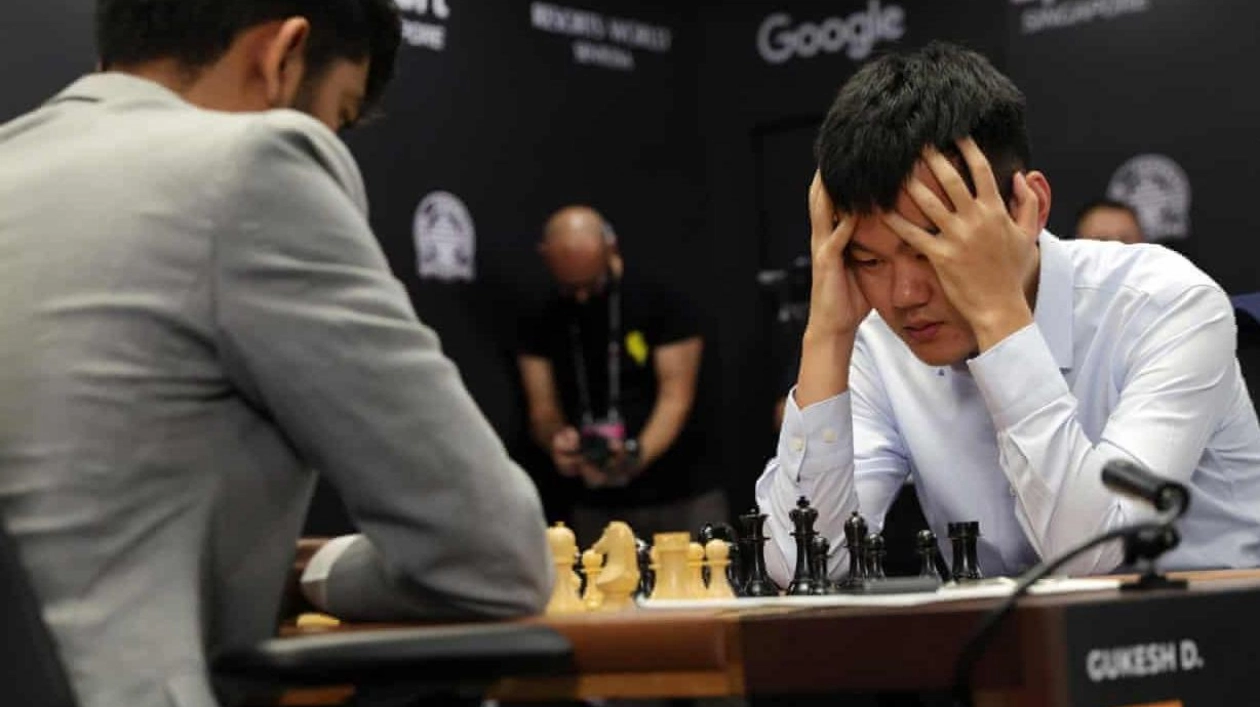Like many Australians, when a Test match concludes early, I find myself aimlessly pottering around the house the next day, feeling utterly purposeless. My heart knows I should be watching cricket, but with no cricket to watch, a void opens up in my life. What am I supposed to fill it with? Chores, charity, or family? No, that won’t do. I need another way to waste my time. Fortunately, there’s an even more ponderous yet occasionally thrilling event happening right now, and it’s the perfect remedy for anyone who finds Test cricket a bit too fast-paced. I’m talking about the world chess championship, currently underway in Singapore.
The viewing experience has never been more accessible for casual chess fans like me, who understand the basics but lack the genius to fully grasp the tactical battles as they unfold. Live streams on YouTube now feature expert commentators who use the lengthy gaps between moves to explain the players’ thought processes, explore potential strategies, and react to pivotal moves in real time. The next morning, recap commentators like the popular Levy Rozman (GothamChess) break down the game for people like me, patiently explaining why certain moves were devastating, with all the excitement and drama of a football final.
This year’s championship is particularly dramatic. With Magnus Carlsen stepping away from the board, the stage is set for reigning champion Ding Liren to defend his title. Ding, who achieved an unlikely victory in the previous championship, has been out of form—but you can never count out a champion. Then there’s the challenger, Gukesh Dommaraju, an 18-year-old who is the third-youngest grandmaster in history and not yet at his peak. It’s the kind of matchup that only a chess enthusiast could dream of, even if Freud might struggle to find it compelling.
Timing is everything in this sport. The clocks are ticking, and the pressure is mounting. Each player has only two hours to make their moves, unless they reach the 40-move mark, at which point they receive an additional 30 minutes and more time after each move. Clock management is a real issue. Ding is known for taking 20 to 40 minutes to think before making a move, which puts pressure on the latter part of his game. He’s already lost a round due to time, but luckily, his opponent is also prone to lengthy deliberations, like the moment in Game 11 when, after an hour of intense thought, he moved a pawn one space forward. Watching two men engage in a global livestreamed think-off? Now that’s thrilling.
The competitors have just finished match 12 of a potential 14-match series, which included six consecutive draws at one point. But now, we’re in the endgame, and the heavyweights are throwing punches. Two games ago, Gukesh executed a brilliant opening strategy and took a late lead in the tournament. Ding, the seemingly sluggish giant, was out of form and slow, and the tournament hung in the balance. But champions thrive under pressure, and Ding, with his back against the wall, deliberately and devastatingly outmaneuvered Gukesh, forcing him to crack under intense pressure. The score is now tied at six games each.
With the specter of a blitz match (a high-speed playoff) looming, the tactical decision remains: do you play for a draw and prepare for sudden death, or can either player secure another victory and claim the world championship? I may be a boring man with boring hobbies, but there’s nothing more exciting in the world of boredom than what’s happening on that board in Singapore. Come on, my fellow boring enthusiasts, things just got interesting.
Source link: https://www.theguardian.com






